Accepting me, just as I am has been a life-long struggle. I grew up as someone who just wanted to please. I wanted to please my parents; to please my teachers; to please my boss. My self-value rose or fell on how happy these people seemed to be with me.
That’s not me anymore, for the most part. It’s not that I’ve become callus and don’t care how I affect people, it’s just that I have arrived at an age where I am quite comfortable with myself and can accept my flaws as well as my strengths. A friend of mine and fellow blogger, Lora Dow recently wrote about noticing the light from within in the same way that a photographer deals with the light surrounding her subject: by “learning to accept all conditions with equanimity.” My daily goal is to simply accept me: my thoughts, my emotions, my desires without owning them, or without allowing them to own me. Don’t get me wrong, my feelings can still run amok. I still sometimes find myself in the destructive loop of experiencing an emotion such as guilt and then watching with dismay as I become guilty about feeling guilt. There is a weighty quote from an early Quaker – Isaac Penington which advises to “give over thy on willing. Give over thy own running. Give over thy own desire to know or be anything ….” When I was young and in a mindset that I had to please everyone, the idea of giving over was quite the struggle. In my yearning to please people I would find myself giving over my desires, and even my ideas to be accepted by others. On the other hand, there was a big part of me that would balk at such a thought. I would get angry at myself for being too compliant. I sometimes saw myself as a dog wanting to please a master, but who in his heart, was a wolf: strong, self sufficient and comfortable being alone. I don’t struggle as much with the idea of giving over now. For me, giving over has become a two-step process. Step one, I work hard to embrace my feelings, ideas and emotions. I try to know them, to delve deeply into them, to understand their genesis as much as I can. In short, I accept them as a part of me; but not an essential part. The second step is then to let the emotions go. They come from me, but they do not define me. Just as I don’t own the air I exhale, I don’t own the emotions I feel. They are like a thunderstorm in the spring. They come and cause noise and bluster, but then they go away. I release them to the Divine. I imagine that I am sinking down into a calming lake and my emotions are like air bubbles that I breath out and release to the surface. One practice that has helped immensely is centering prayer, championed by the recently deceased Trappist monk, Thomas Keating. Keating teaches that “Our basic core of goodness is our true Self. Its center of gravity is God.” In order to get to the point where we accept that we are good at our core, I found it helpful to focus on the second sentence of the Keating quote: “Its center of gravity is God.” Our earth is spinning on its axis at about 1,000 miles per hour. Without gravity, we would be spun off into the vastness of space. Like gravity, I believe that God anchors us. Our rootedness in God keeps our emotions from spinning out of control and taking over our thoughts and actions. When we are centered on God, we find that our goodness has little to do with us. We haven’t earned our goodness. We haven’t brought it about by our actions or by banishing “bad thoughts” from our mind. Our goodness just is. Many mystics teach that there is a True Self – often defined as our soul which is connected to the Divine – and then there is our False Self, the one that is roiled by thoughts, desires and emotions. I find that dichotomy to be true, but unhelpful. What I find most helpful is this: Through daily prayer and meditation I try to center myself on God. Throughout the day, I strive to acknowledge the grace of God on display in the beauty of the world. And in that centering and awareness of the goodness of the Divine that abounds, I find that the struggle between my True Self and my False Self simply fades away. At first, there is only me. My essential goodness is me. My soul connected to God is me. My thoughts, desires and emotions – good and bad - are me. But then, on the days when I am well centered, I find that I have given over me, and discover there is only God.
0 Comments
Han, is a Korean word that has no ready translation in English. The best description I’ve seen comes from the TV series The West Wing, where U.S. President Bartlet (played by Martin Sheen) explains that Han is " a state of mind. Of soul, really. A sadness. A sadness so deep no tears will come. And yet still there's hope."
Han describes a soul that somehow finds a way to live with the paradox of sadness and hope. It is perversely comforting to know there is a word for how I’ve been feeling: a deep sadness about our planet that is under duress and about our children – a whole generation now - growing up with the sense that they could be killed at school at any moment by an unstable person with a gun. A recent and compelling petition from a young girl pleading for action on climate change expresses the concept of Han far better than anything I can say. Greta, a 16 year old environmental activists from Switzerland, told the World Economic Summit that " I don't want you to feel hope. I want you to feel the fear that I feel. I want you to act as if the house is on fire, because it is.” If you do nothing else today, please watch this compelling one minute video of Greta imploring us all to action. The evidence on Climate Change is undeniable, and yet we allow the deniers to dominate the agenda. If there is any doubt about how serious this has become, just start clicking on some of the topics in this NASA website to gain a better understanding of the plight all humanity faces: global temperature increasing, warming oceans, sea level rising, extreme environmental events, or ocean acidification. Plenty here for a brooding sense of sadness. Thank God for the Gretas of the world to offer a smidgeon of hope for change in the face of impending global disaster. We have the same dynamic on gun control. In just a few weeks it will be Valentine’s day. This year, Valentine’s day takes on a more ominous tone, as it will mark the one year anniversary of the Parkland Florida mass shooting at the Stoneman Douglas High School where 14 students and 3 adults were killed. Since 1982, using the most conservative definition, there have been 108 mass shootings in the United States. We should all be unsettled by the fact that the frequency of mass shootings has tripled in recent years, but we seem to have become numb to them. Point in fact, there was an execution style slaying of five women recently in a Florida bank, but it barely made the national news. I don’t know if we’re numb, or tired, or just getting too old to muster a serious fight on these issues. Or perhaps there are too many issues these days and we feel like there is only so much one can take on. All of this brings me back to Greta and the concept of Han. Greta pleaded that she doesn’t want us to feel hope. But, if Greta didn’t have hope, she would not have traveled 32 hours by train to appeal for action and sanity on climate change. I'm convinced it was her hope for change that brought her to the World Economic Summit. Greta – at 16 years old – seems to have learned how to live with the paradox of sadness and hope. I hope we can learn from her example. I hope that we can continue the fight on these and other critical issues of our time. I hope.
I was sitting in Starbucks, fighting back tears as I read the Eulogy that George W. Bush gave at his father’s funeral. I’ll be the first to admit that I’m a crybaby. I often find myself overcome with strong emotions; mostly at tender moments. If anyone looks at pictures of me at my daughter’s recent wedding, they will see that in many of them (walking down the aisle, the father’s toast, dancing with the bride) I was teary-eyed.
But that doesn’t explain my emotional struggle over the eulogy for George H.W. Bush. This is especially puzzling because I was not much of a fan of either of the Bush men when they served as President. I figure the tears at Starbucks have more to do with where I am in life than with the Bush family. We are coming up on the anniversary of my mother’s death. And, while my father died 30 years ago, I still miss him and occasionally talk to him in my mind. I now know that as I sat reading the Bush eulogy, I was remembering the passing of my parents. I was also – at some level – brooding over the time in the unknown, but shrinking future when my own children will be standing at my funeral and telling the story of me through their eyes. I have learned, in hind sight, that the tears I shed at Starbucks came from a shared sense of humanity. Like I said, the Bush presidents weren’t my favorites, but the tearful words of the son for the father brought out a kind of kindred mourning. George W. Bush was no longer a distant politician whose policies I disdained. He was transformed into a fellow son, mourning the passing of his dad. A friend of mine – a Quaker of long standing and of deep wisdom – recently remarked that we all should learn how to “listen in tongues.” While she applied this idea to Quaker spirituality, I think it can be understood more deeply. Listening in tongues means that we strive to hear the voice - and the pain behind the voice - of those we encounter. Each person has a unique life story; one full of joy, sorrow, disappointment and pride of accomplishment. Isn’t that the lesson we are all learning through the study of Adverse Childhood Experience: that no person is just “one thing.” The present is often crowded with the ghosts of our past and if we don’t learn to listen to those ghosts, we run the risk of repeating our mistakes. By understanding my own pain over the death of my parents, I can begin to see George W. Bush in a more compassionate light. And because of his vulnerability and willingness to share his pain with the world, we gained a new insight into his heart. Listening in tongues means that we learn to hear the heart of each person; that we can hear the whisper of the ghosts still haunting them, that we can hear their fears and their dreams, no matter how faint they may be or how deeply they may be buried. The first step in learning to listen in tongues is learning to hear our own heart; to discern our true voice over those of our frightened self, seeking to cover over our pain. And once we are practiced at listening to our heart, we will find that our center is one of goodness and light. The next step in learning to listen in tongues is to acknowledge that each person we meet also has a center that is goodness and light but for some, that light is faint and the sound of goodness is drowned out by the cacophony of their fears and adverse lessons learned from their past. In the final analysis, listening in tongues is not listening at all. It is most simply, an act of love. And for that, we need no translation.
The Winter Solstice will begin on Friday December 21st at 4:22 PM Central time. This will be the longest night of the year. Throughout the world and through ancient and modern times, this has been a cause for reflection and celebration. It has been a time of joyful anticipation and a celebration of light amidst a prevailing darkness. I would like to share with you a real-life example of the celebration of light against darkness.
As I drive on Burleigh Street to attend Sunday Quaker Meeting, I have passed this particular house numerous times. It would be more accurate to say that I have ignored this house, because my eyes have always been focused elsewhere. But on the Sunday after Thanksgiving, the homeowner placed large, red Christmas bows on the chain-link fence surrounding the property; one bow on each fence post in the front yard. The bright red bows drew my attention to the house from a block away. This is a typical Milwaukee bungalow, nicely maintained with a four-foot chain-link fence in front and a bird bath in the yard. There are two reasons why I haven’t noticed this house before. The first is that this stretch of Burleigh Street is poorly maintained and I keep my eyes on the road in order to avoid the washboard like dips and bumps on the street. The other reason I’ve ignored this home is because directly across the street from it are three hulking, vacant, burnt-out duplexes that stretch from the middle of the block to the corner. One of these three houses has fire damage and I can see the sky through the rafters of the roof. So, as I drive this section of Burleigh Street my eyes are on the road in order to protect my car from damage and then they are on these massive eyesores. These derelict duplexes sit on this block like a black hole in space, sucking up all the light and energy around. I think about the homeowner with the bows on the fence. As they walk out their front door, the dilapidated duplexes are right in front of them. I imagine that these duplexes are what the homeowners see as they sit in their living room and look out their window. To me, the bungalow homeowner with the red bows in the front yard is making a choice. She or he or they are choosing to celebrate the light and refuse to let the darkness on their street prevail. They are saying that at this time, on this block, these people are determined to not only seek the light when confronted with darkness, but they have chosen to be the light on their little corner of the world. God bless them. Lord knows there is plenty of darkness in the world. Just since Thanksgiving we have seen:
At this time of year when we have more dark than light and at this time in history when darkness seems to be prevailing in the world, what is our calling? For me, I want to be like that homeowner who lives on a deteriorating section of Burleigh Street across from three burned out wrecks. I want to be proud of fixing up my part of the world and I want to put out red ribbons to declare to all that light and goodness will prevail. And so, here is my prayer: Lord,
When a pendulum reaches its maximum arc, the velocity is zero. Everything stops. With the recent election, it feels like the pendulum stopped swinging and soon perhaps, it will begin its journey back to the center. Beginning in January 2019, we will have returned to a system of shared governance; one with appropriate checks and balances, as envisioned by the framers of the Republic.
The American system of government was designed to mitigate two competing visions of authority. On one side were those who feared the tyranny of the majority, believing that a pure democracy would lead to chaos. Those on the other side feared the tyranny of the minority; that a person or a party could impose their will on the unwilling. And so, our founders devised a government designed to limit the ability of any party or person to create too much power. America is a divided country at the moment: Urban vs. rural, educated vs. less educated, white vs. people of color, Democrat vs. Republican, wealthy vs. the poor and the dwindling middle class. With a country so divided and at so many levels, perhaps what we need the most right now is a divided government; but one that uses the division of power to seek compromise and addresses the root causes of our disunion. Joseph Stiglitz, a Nobel prize winning economist, writes “There is a widespread sense of powerlessness, both in our economic and political life. We seem no longer to control our own destinies….For a third of a century, the American economy has failed to enhance the well-being of a majority of its citizens” Stiglitz was discussing how large corporate monopolies have exacerbated the social and economic problems facing America and have worked to pervert the political process. Corporate and political monopolies have brought us to a place where our political and economic systems no longer work to improve the life of the average citizen. We are a country that is racially, economically and geographically divided while at the same time our two political parties fight for sole control of all levers of government in order to impose their own priorities on everyone. It is no wonder that our country feels on the verge of imploding. The rich are getting opulently more wealthy as the already powerful strive to amass more power, and the average citizen is feeling socially and economically squeezed and evermore powerless. At a time where we sorely need a divided government to inhibit the tyranny of the minority, we also need an engaged populous in order to hold our politicians and captains of industry accountable. We need to get back to a government and an economy that works for all of us and not just the connected or privileged few. This isn’t really so farfetched. It feels like we are on the verge of this very movement now. We have both aspects already underway: a divided government and an engaged populous. Expecting a divided government to solve our problems is not all that outlandish because there is broad consensus on a variety of “divisive” issues. According to a series of Gallup polls, the majority of people support gun control. We support an improved environment, and healthcare for everyone. A large majority believe immigration is good for America and that repairing our infrastructure is key to our ongoing economic wellbeing. Significantly, the majority of Americans also want government to work better by ending the partisanship and finding a way to compromise and solve our most pressing problems. The American people have a unified vision on a wide variety of significant issues. It is our political parties and corporate elite that ignore the will of the people and who seem hell bent on amassing power, often at the expense of social and economic progress for the country as a whole. Our country is divided – as Stiglitz points out – because the political and economic infrastructure has failed us. The push for more money and more power – at all costs – has driven divisions through the heart of America. But now the pendulum has stopped. We can take a breath and get ready for the pendulum to swing back as it picks up speed. Our job is to ensure that the momentum works to our advantage. Our job is to ensure that every politician and corporate elite understands that for American to thrive, we need to focus on the common good. The politics of power for power’s sake are done. The time of amassing wealth at the expense of the many are over. A divided government is a government designed to ensure that the considerations of the many take precedent over the whims of the few. But, this will only work if we stay committed and engaged. The pendulum has stopped for now. But we cannot.
I feel compelled to make one observation. The president wants us to be afraid of the immigrants and asylum seekers hoping to cross our border, when the real terrorists are home grown middle aged – and for the most part – white males.
We hear the threats almost daily about the immigrant caravan that is yet 900 miles away, stating - with no evidence - that it serves as a cover for gangs and terrorists wanting access to our country. Yet, the real terrorist are already here. Cesar Sayoc – the pipe bomb terrorist suspect who tried to assassinate 14 high profile critics of the president is a mid-fifties male, born and raised in America. Robert Bowers, the gunman who killed 11 worshipers at the Pittsburgh Jewish Synagogue is a white male, born and raised in America. Gregory Bush, the suspect who shot down two people at a Kroger grocery store in Kentucky is a white male, born and raised in America. In fact, more Americans are killed by right-wing, American born extremists than by any other group. Terrorism is born out of hatred and hatred is born out of fear. If we want to stop the home-grown terrorists, we have to stop stoking fear and begin dealing with the real - social and economic issues driving that fear.
I receive daily, a half-dozen email meditations to help spur my spiritual growth. One of them recently posed a question that made me reflect more deeply on my life. A paraphrase of the question is this: Is it possible to live on this planet with a spirit of generosity, abundance, fearlessness and beauty? (Inward/Outward Daily Meditation quoting Cynthia Bourgeault, from The Wisdom Jesus)
I will be the first to admit that there are no days when I live up to all four of these attributes. There may be a day – here and there – when I can claim to model one or two of them. As I see it, the world doesn’t only exhibit these positive traits. All too often we are confronted with a world that is mean spirited, greedy, power hungry, cowardly and bleak. I don’t think we can innocently stick our heads in the sand and pretend that the negative aspects of the world don’t affect us. They do, and in many ways it is inescapable. There are days when I consciously stay away from social media, where I won’t read the newspapers or watch news shows. These are days when my entire being feels wounded by the constant battering of negative news; when my soul feels like an exposed nerve, wincing at every assault on its tender sensibilities. I’m pretty sure that the world won’t become a paradise in our lifetime: a place devoid of conflict, where peace and splendor abound. And if that is so, then how do we go about our day fearlessly displaying a generosity of spirit and celebrating an abundance of beauty? How do we experience joy when there is so much negativity, sorrow and pain? I believe we must learn to live with the paradox of life. We must accept the fact that the world is generous and stingy; that we can have both scarcity and abundance; that sometimes we will be brave and other times we will act cowardly and that often the beauty of the world becomes scarred, battered and destroyed. In short, we must learn to accept life as it is, in all its gore and glory. I don’t mean this in a fatalistic sense. By no means do I support the belief that what happens to us is part of a cosmic plan and that we must simply accept our fate. What I do believe is that the Devine intervenes in the world in very much the same way that a community organizer intervenes in a neighborhood or on an issue. The organizer and the people are co-creators of making the world a better place. A good organizer has a solid grasp of the environment in which s/he is working and can articulate a vision for a better day. As such, a good organizer can inspire people to a higher calling. Also, a good organizer understands that lasting change only happens when people own the work; when they participate in the strategy and the toil; when they have their legs knocked out from under them and can get back up and continue to organize and to try again. Lasting change comes through collective struggle and a sense of community empowerment. The organizer is the spark. The people are the engine of change. That is how I believe God approaches the world. The Spirit breathes within each of us; calling us to something greater; coaxing us to step out fearlessly into the world and to bring forth the kingdom of God by the work of our own hands. And that brings me back to living life with a spirit of generosity, abundance, fearlessness and beauty. We can be fearless because we know we are agents of God on earth. We acknowledge the greed that causes scarcity, but we model generosity and organize people to bring about a world of abundance for all, as it is meant to be. We help people to see the pain and suffering of the world, but we embody the love and beauty that is possible, even in the most dire of times. God calls us and we, in turn, are expected to call upon the world to work together; to be the voice and body of God in the midst of all that is wrong around us. We are called to stand as an open door, a threshold – helping others to gain a glimpse of the beauty, love and generosity that is possible. In the words of Hafiz, the Sufi Master: We have not come here to take prisoners, But to surrender ever more deeply To freedom and joy. We have not come into this exquisite world To hold ourselves hostage from love… Or to confine our wonderous spirits, But to experience ever and ever more deeply Our divine courage, freedom, and Light!
 Distributional National Accounts: Methods and Estimates for the United States - Table II Distributional National Accounts: Methods and Estimates for the United States - Table II I’m not a bird watcher by any means, so when I saw the word Shrike used as a title for a haunting song by an artist named Hozier, I had to look it up. The Shrike is a small bird – no bigger than a Robin – that lives in a hedgerow and impales its prey on thorns. For obvious reason, that image of a bird using a thorn bush as its own personal pantry was difficult for me to shake. I ruminated about it for days. Around the same time I was thinking about the Shrike’s unique hunting and feeding style, I read a report on the American economy – comparing population and income from 1946 to 1980 and then from 1980-2014. This report, written by Thomas Piketty and a couple of UC Berkley professors, provides an equally haunting image; one that helped me better understand the seething sense of anger that bubbles up in social media and political campaign and in op-ed articles at just about every turn. The authors state that “for the bottom 50% of working age adults….income has collapsed since 1979.” I know that we’ve seen this data in other ways, but the charts are stark and stunning. In the 34 years between 1946 – 1980, the bottom 50% and the middle class was doing quite well. For the most part during that period all lower and middle income groups saw incomes rise by more than 100%. At the same time, the top 10% had more modest income gains; somewhere between 47-79%. But, in the 34 years between 1980 and 2014, the wheels fell off for the lower and middle income families. Instead of income gains, those at the bottom saw a 25% decrease in income while others saw only single digit increases. During those same 34 years, the wealthiest segment of the population saw income gains above 200%, 300%, 500% and even 600%. The data is pretty astounding. I was pondering these reports and had the image of the Shrike in the back of my mind as I was walking into a Quaker meeting on a recent Sunday and the two images just merged together. I stopped walking and stood for a moment to absorb the thought. I came to the realization that we are living in a Shrike world, where lower and middle income families are impaled on the spikes of the economy so that the wealthiest can feed themselves to excess. I’m not sure what to do with this image and information. Just writing about it doesn’t seem to be enough. I’m old enough to remember the venerable Senator William Proxmire, a Wisconsin legend. I especially remember his Golden Fleece Award – issued monthly to government agencies that Proxmire thought were wasting taxpayer dollars. Maybe it’s time to bring back that Proxmire tradition. Maybe we should begin issuing monthly SHRIKE awards to the people and companies who do the most harm to lower and working class families; to those who use their position of influence and power to enrich themselves and their friends at the expense of the community. The SHRIKE award shouldn’t be limited to politicians. Slumlords would be an apt recipient as too would be the folks who were operating an opioid prescription mill in Wauwatosa, WI. How about doctors who scam Medicare to enrich their own pocketbook? Big environmental polluters would be good recipients. After all, many companies pollute the environment while reaping profits from their actions and leave the “clean up” from their mess up to the taxpayers. Once you start thinking about it, the list of possible SHRIKE Award recipients seems – unfortunately – endless. Who will you nominate?
How does one enlist in the struggle for the soul of America? And, how do we do so without further dividing the country? As a nation, it feels like we are either screaming at each other or we are holding our breath, hoping that the country doesn’t implode under our own discord. The divisions we feel in America today are real. I was born and raised on southwestern Pennsylvania and talk regularly via social media with friends back there. Many are President Trump supporters. They see their wages declining, their children and friends becoming addicted to drugs, their towns dying and they are looking for someone – anyone - who can turn things around. Politically, culturally, spiritually, and by almost any other measures, it seems that our country is under duress. We recently heard our president offer that if Republicans don’t retain control of Congress in the November mid-term elections, there will be a violent overthrow of conservative policies. This is just another reminder about the intensity of the struggle for control of our country as each faction works to gain or retain power in order to enact policies reflecting their own vision of America. Who we are as a people and what values we espouse through our public policies is the battle ground of our time. But, how do we do so in a way that promotes community and not division? We seem to think this is hard because we forget that we used to do this all the time. The American model of an orderly transition of power began after the bitterly fought election of 1800. The Federalists and Republicans were at odds, each believing that the other – if they should win – would be the downfall of this nascent country. To gain a sense of how deeply divided was the country at that time, consider this quote from Thomas Jefferson as he looked back at the traumatic events of that era: “public discussions…whether relating to men, measures, or opinions, were conducted by the parties with animosity, a bitterness, and an indecency, which had never been exceeded. All the resources of reason, and of wrath, were exhausted by each party in support of its own, and to prostrate the adversary opinions.” When describing the sense of animosity in Philadelphia (the nation’s capital at that time) Jefferson wrote “Men who have been intimate all their lives cross the streets to avoid meeting and turn their heads another way, lest they should be obliged to touch their hats.” Political activists of that time truly believed that the election of 1800 was a fight for the survival of the country. There were sex scandals (yes, even back then), financial crisis, military defeats, a Yellow Fever epidemic, all of which became fodder used for political gain. It wasn’t just the election of 1800 that we saw a deeply divide nation, America has been a country divided throughout much of its history. We were begat in a revolution and after the revolution fought each other – often violently – over land expansion and slavery. Racial tension is woven into the fabric of who we are as witnessed by the nearly 4,000 people lynched in America, most of whom were black. We continue to be a country divided over civil rights, guy rights, war, the environment, abortion, school choice, guns and many other issues. Even with all this strife over much of our history, we have found a way to pull together as a country, to unite around the ideal of America, democracy and freedom. So, how do we do this? How do we engage in the social and political debate without ceding ground to those policies we oppose and do so from a place of community? Here are my suggestions. First – find that goodness within. If we don’t believe that the essence of who we are is rooted in goodness, then how can we see the same for others? Find and trust the goodness in your own heart. Second – find and trust the goodness in those you encounter. That doesn’t mean you acquiesce to them, it simply means that try to look at the issues with their eyes, from their point of view. And do so with an open heart and an open mind. Third – Hold fast to the truth. Speak the truth and hold others accountable for speaking the truth. The goal here is to consistently lift up the truth like a light in a dark cave, but to do so in a way that isn’t strident or demeaning. Here is the ultimate test: can you disagree with a disagreeable person without becoming disagreeable yourself? The key, is to focus on you and not on them. Control what you say, or how you act and what you do. Fourth – focus on building community. Commit to a win-win strategy and stick to it. Before you speak, or take action or take a position, ask yourself: how can I do this in a way that builds community? I wrote previously about a triple love decision making process. Now would be a good time to refresh your memory on it. We Americans are at our best when we recognize our own frailties within others and when we keep our focus on what is best for our community and for our country. Perhaps we don’t really need to fight for the heart of America, we just have to find it within ourselves and own it. We have to find it within our neighbors and cherish it. We have to find it in those who we choose to represent us and who will lift up the spirit of a nation united. Meghan McCain said it well during the eulogy of her father, Senator John McCain. “The America of John McCain is generous and welcoming and bold. She is resourceful and confident and secure. She meets her responsibilities. She speaks quietly because she is strong. America does not boast because she has no need to. The America of John McCain has no need to be made great again because America was always great.” I’m not so sure America has always been great. But I do know that Americans have found a way to get through divisive times before by focusing on what we each can contribute. As Gandhi wrote – “As a man changes his own nature, so does the attitude of the world change towards him. . . . We need not wait to see what others do.” Or, as the Gandhi quote is oft paraphrased, “Be the change you want to see in the world.”
Where is the pain in the world right now? Or perhaps a better question is: where is God in the midst of all the pain we see in the world.
Identifying the points of pain isn’t difficult. In fact, the suffering in the world is all too apparent and found in too many places.
I could certainly go on. I haven’t mentioned the effects of gun violence, poverty, racism, sexism, hunger, homelessness, sex trafficking, poor education, economic dislocation, income inequality, greed and too much more. But this post isn’t intended to be a litany of woes in the world. What I really want to explore is the question of where is God in light of all the suffering. It is not uncommon to hear people proclaim that God must have a plan and as such the suffering we see must be a part of that plan. Can that really be true? I was raised in a very loving family and at no time did my parents deliberately cause me suffering in order to teach me a lesson. My father and mother – who were fallible – could never bring themselves to use suffering as a teaching tool. If my fallible parents were incapable of such actions, I have to believe that the idea is alien to the Divine, as well. In short, I don’t believe that pain and suffering is part of God’s plan. So, if it is not part of God’s plan, is it the result of an active agent of evil in the world? Is the devil preying on people in order to drive us from the arms of God? As I’ve written before, I don’t believe in the devil. Evil, I believe, is the result of people closing off their hearts to God and following the dictates of their own ego. And so the question remains: where is God in all of this? I believe he is tapping us on the shoulder. A good friend and Baptist preacher once told me that he believes God has finished his work in the world. I looked at him kind of puzzled – because after all – this was a prominent Baptist preacher telling me that God was done with us. He explained that God isn’t done with us – but he is done with intervening directly in the world. I agree. As a Quaker, I believe there is “that of God” in each of us; that my unique and eternal soul is linked directly to the Divine. I strive to carve out time each day to sit in stillness; to be in communion with the part of the Divine that is within me. I don’t pretend that God talks to me. Hearing God talk to me isn’t what sitting in stillness is all about. I have come to believe that the time I sit in stillness is the time I am preparing myself to hear the voice of God. It is rare that I feel I have heard God from out of the stillness. More typically, as I go about my day, I will hear a thought. It will often be just a quiet idea that pops into my head. But it will be one that comes with a sense of certainty; a sense that it is a leading from the Divine. And then I know I must act on that leading. God tapped me on the shoulder and nudged me to act on his behalf. There is a video circulating on social media by a business coach named Bill Hart. In the 2.5 minute video, Hart describes an encounter he had with a woman in a restaurant as a result of his sense that he was called by God. I encourage you to watch it. In this video, Hart aptly describes how a leading from God appears and what joy is derived from acting on it. And so, back to the original question: where is God in all of the pain and suffering in the world? He is calling us to listen and to act. He is urging us to seek out the pain in the same way that a sunflower seeks out the sun and to minister to those in need. He calls us to listen for his voice – as it is there as surely is the sun at noon – and to act on it. It is far too easy to curse God for allowing suffering to persist. It is a bit harder to recognize that it is we who are continuing the suffering by ignoring the call of God. After all, there are no acts of God without acts of people. |
AuthorMike Soika has been a community activist for more than 30 years working on issues of social and economic justice. His work for justice is anchored by his spiritual formation first as a Catholic and now as a Quaker. Pre 2018 Archives
|
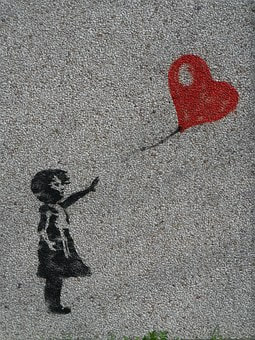
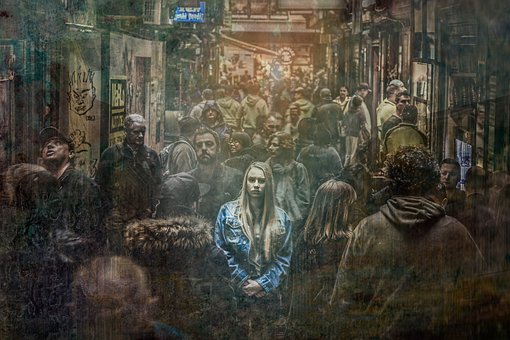
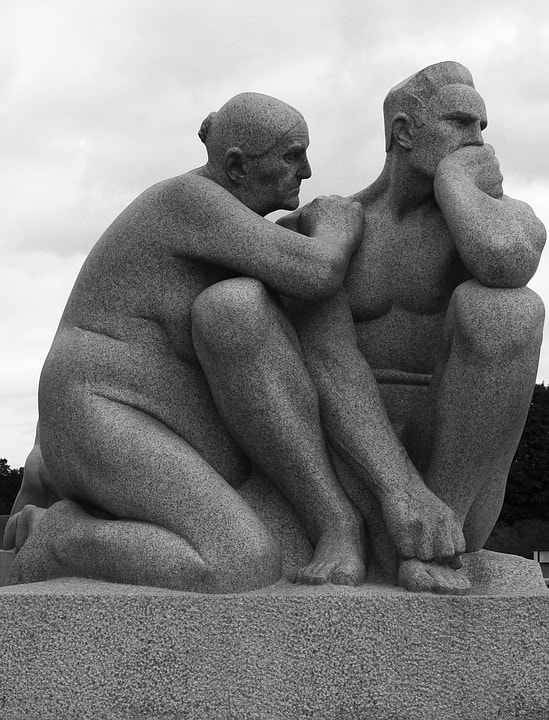

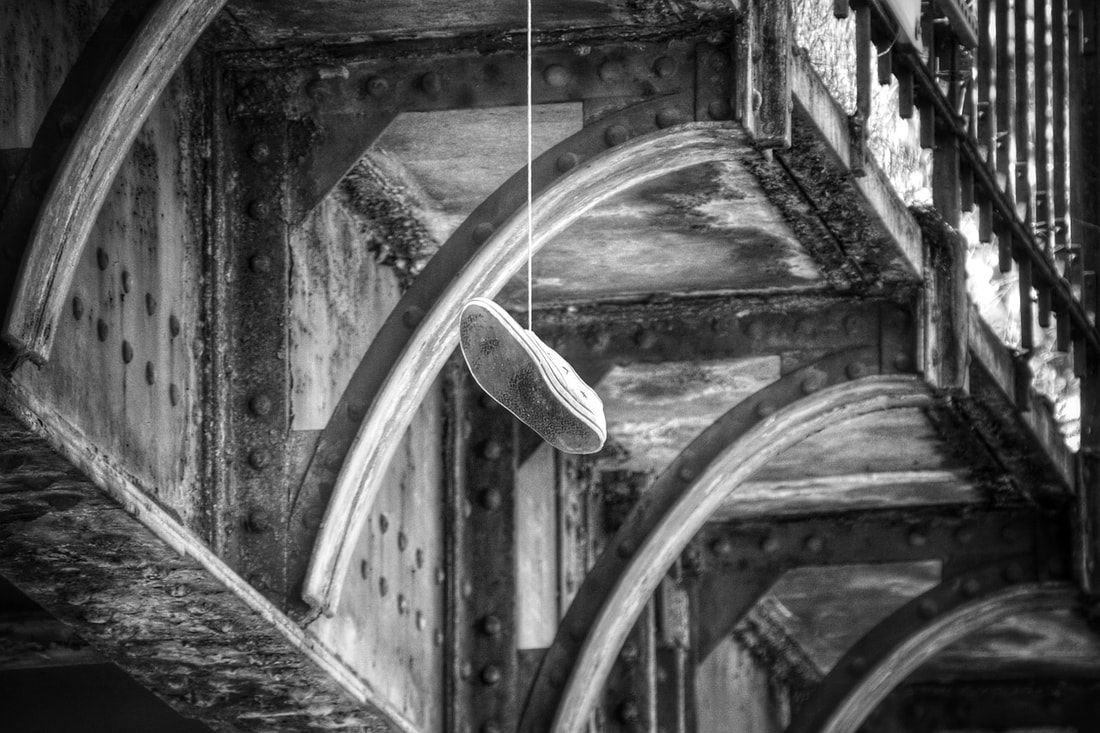
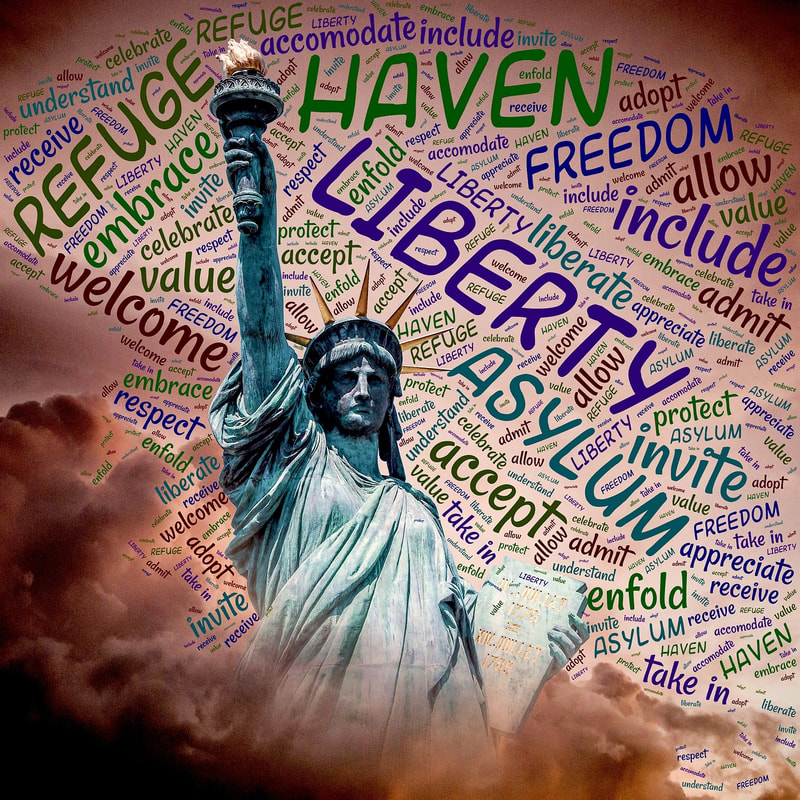
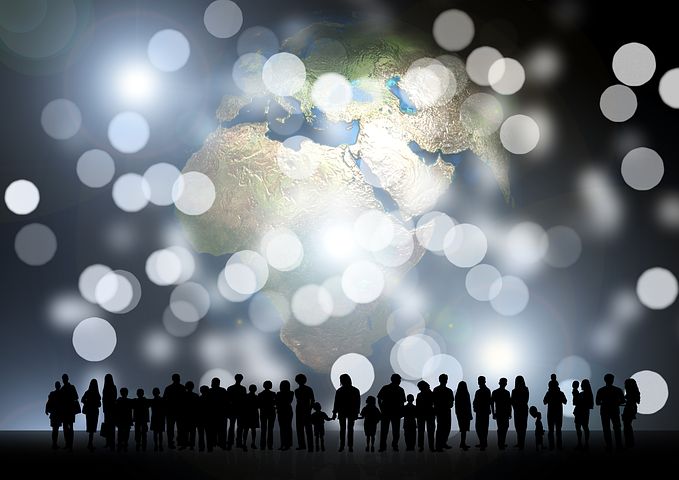


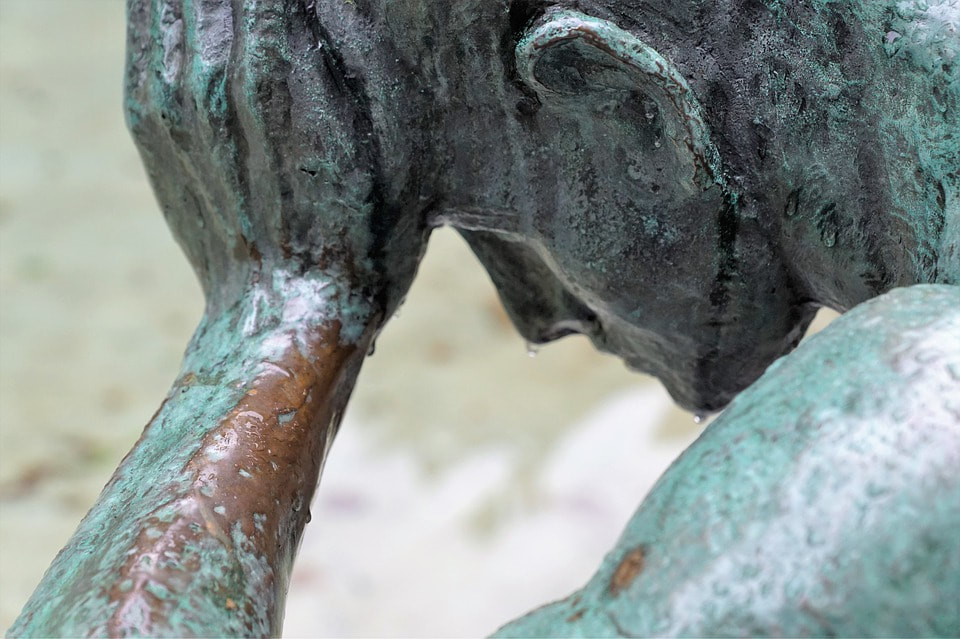
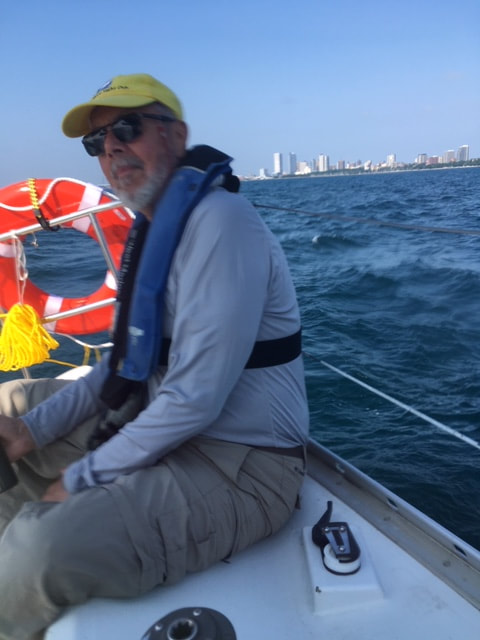
 RSS Feed
RSS Feed
